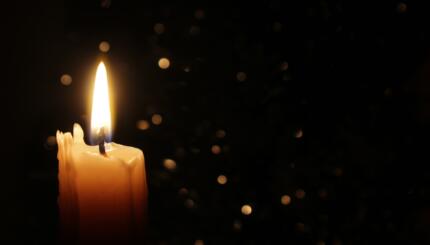There is an old tale of a man who was searching for the finest archer and came upon a barn covered with painted targets. In the center of each rested an arrow – dead-center. The incredulous man asked how such perfection could be achieved. The barn owner let loose a shot – the arrow flew crazily – and landed well outside any of the targets. The fellow grabbed a brush and bucket – and painted a perfect circle around the arrow.
We laugh at this story because it really speaks to our human nature. No one can hit the bull’s eye every time, but we sure want to seem as if we can.
This summer, I read a book that reminded me of that little story: “How Adam Smith Can Change Your Life: An Unexpected Guide to Human Nature and Happiness” by Russ Roberts. It is not a sacred Jewish text, but every page is rich with Jewish ethics and an excellent intro to the coming days of cheshbon hanefesh (soul searching, literally “accounting of the soul”) as we prepare for the High Holy Days.
WHEN IS ROSH HASHANAH 2015? Find out here. Or wondering when is Yom Kippur 2015? Click here to find out!
Adam Smith is best known as the father of modern economics, but his humility, modesty and, above all, honesty and self-knowledge, are models for us all. He was a masterful observer of human nature: our quirks and foibles, our attraction to shiny objects, our desire to be loved by our fellows, and our innate desire to be lovable. Fortunately for us, Roberts unpacks the timeless messages written in 18th-century prose to make it accessible to our modern hearts and minds.
The book is, in many ways, a treatise on teshuvah, and the peace of seeking true self-knowledge and honest relationships, and the happiness of understanding – and embracing – what is truly important. He points to ways we can examine and improve ourselves and our behavior toward an ideal that would earn us the deserved affection and respect of others.
Hillel, and the Ba’al Shem Tov, who was Smith’s contemporary, are among the Jewish sages featured in Roberts’ book, and he notes that the mystic posited that ‘we notice the flaws on those around us to remind us of our own flaws and spur us to self-improvement.’ Oh, if only it was as simple as it sounds!
Like our sacred texts, Smith advises us to view ourselves, our decisions and our actions through the eyes of an impartial spectator (also known as God [or ‘conscience’ or ‘the norm of society’]) because only when we feel judged honestly can we see ourselves honestly and be spurred to that self-improvement.
Smith reminds us how susceptible we are to praise we do not deserve – whether it is heaped on by others or ourselves. But when we feel we are more highly regarded by others than we are by ourselves, when we act selfishly, we end up feeling in conflict with ourselves. We do not feel truly lovable – and so cannot feel truly loved. And this tragedy creates a need for further unhealthy ego boosts.
Echoing the prophets, Smith reminds us, too, that we are masters of self-deception. The Ba’al Shem Tov, healer of broken spirits, would have appreciated the words of Robert Burns, another of his own and Smith’s contemporaries, who wrote in 1786: “O, wad some Power the giftie gie us To see oursels as ithers see us!” (O, would some Power give us the gift to see ourselves as others see us.)
They all urge us to look into our heart of hearts, where we may find that things we do for the sake of others actually benefit us. Or the way we convince ourselves that we really do deserve a raise or a promotion much more than a colleague does. Or decide that we are far wiser, or somehow better, than a neighbor or friend or family member. Or that our day jobs are more important than being at the kids’ dance recitals because we’re earning money to give them “the good life.” All of these, he says, are signs that we are deceiving ourselves, aiming to achieve a goal – hit a target – that is not worth attaining because it distracts us from reaching our potential as human beings contributing to the welfare of all. And, mostly, because it prevents us from being, and feeling that we are truly lovable.
So timeless advice from our ancient and more modern Jewish sages, a British economist, a Scottish bard, a contemporary author – and countless other sages throughout human history – all converge to teach us to stand before a mirror and see ourselves with clarity and heal ourselves with honesty until we find ourselves to be as lovely on the inside as on the outside. Or maybe even lovelier.
Yom Kippur
Pronounced: yohm KIPP-er, also yohm kee-PORE, Origin: Hebrew, The Day of Atonement, the holiest day on the Jewish calendar and, with Rosh Hashanah, one of the High Holidays.



